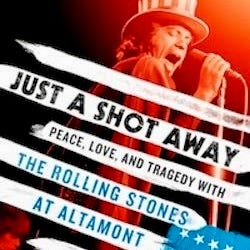Altamont: Prophecy and Sinkhole
Remembering the 18-year-old Meredith Hunter on the anniversary of his death


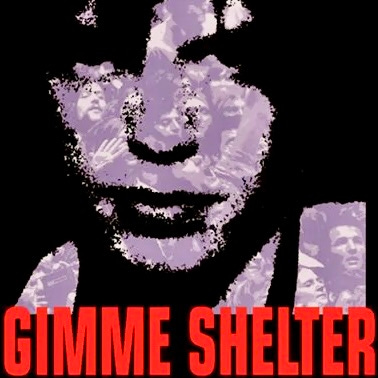
Just a Shot Away, by Saul Austerlitz. St. Martin's Press, 2018
from truthdig, September 21, 2018
December 6 marks the 55th anniversary of the Altamont show featured in Gimme Shelter, the exploitation film from that Rolling Stones debauch. It’s worth reiterating how foul the band’s response remains. In Keith Richard’s A Life memoir from 2010, he still blames the “boneheaded” San Fransisco City Council. And as recently as 2021, the Stones announced they would drop their slave ship bacchanal “Brown Sugar” from their live sets. But sure enough, it shows up on their annoyingly above-par 2021 live album, A Bigger Bang (the last with Charlie Watts). Richards told Mikael Wood “I’m trying to figure out with the sisters quite where the beef is. Didn’t they understand this was a song about the horrors of slavery?” Sure, Keith. That’s why they dance so good.
IN THAT GREAT ballooning myth of the '60s, Altamont ranks right up there with the anti-war demonstrations at Chicago's Democratic Convention (1968), the Charles Manson murders (1969), and the National Guard killings at Kent State (1970). Since the event entered wider consciousness through Gimme Shelter, the 1970 feature documentary by the Maysles brothers, the story has ripened into its own conundrum, both as history and cliché, prophecy and sinkhole.
It has produced at least one literary masterpiece in Stanley Booth's Dance With the Devil: The Rolling Stones and Their Times (first published in 1984), by a participant and good friend of musician Gram Parsons, which still repays close reading. Photographer Ethan A. Russell wrote his account of the tour with a picture book, Let It Bleed, in 2009. Last year brought Altamont: The Rolling Stones, the Hells Angels, and the Inside Story of Rock's Darkest Day, a searing piece of reporting by longtime Bay Area scribe Joel Selvin.
Screening alongside Woodstock that same summer, Gimme Shelter's Altamont assumed its symbolic stature as a metaphor for a curdled utopia, and fixed itself as the dark pole of the ongoing culture wars.
In the new Just a Shot Away, Saul Austerlitz finally frames the narrative around Meredith Hunter, the 18-year-old black man stabbed and beaten to death by the Hells Angels, who goes unnamed in Gimme Shelter. Although uneven, Austerlitz updates this incident for our #blacklivesmatter moment and retells a crucial story: of a black man cut down in the front row of a "free" concert, planned with a breathtaking naïveté, that jolted into violence.
Like the '60s, the event has its own fittingly twisted history: the early reports, filed by reporter Jim Wood before the Stones stepped on stage, ran in the San Francisco Examiner and then AP wires dubbing it "Woodstock West." "Some Were Born...Two Died," ran the headline, but medical staffers knew that the urban legend of festival births, launched at Woodstock four months earlier, might well have been a ploy by promoters to cover up the violence. It took a troupe of Rolling Stone reporters to write up a corrective report in a single issue (dated January 21, 1970), famously edited by John Burks. Even with its own real-time inaccuracies, the Rolling Stone account made that magazine's reputation and remains a pillar of participatory journalism.
The following year, the Gimme Shelter documentary came out, which cut together concert footage from throughout the Rolling Stones' otherwise triumphal tour and crested with the unbearable Altamont sequence. Austerlitz reveals how the film's meta-narrative, conceived by editor Charlotte Zwerin, saved the project. "The problem, as Zwerin saw it," Austerlitz writes, "was that the Rolling Stones needed to be confronted with the proof of their own failures." So the Maysles set up a camera at a London editing suite and invited the Stones to watch the footage together. In the end, only Mick Jagger and drummer Charlie Watts attended, and their reactions, or non-reactions, ended with a famous freeze-frame of Jagger making elusive eye contact with the camera. Jagger's knowing glance serves as the movie's indictment: The Hells Angels stabbed and beat Hunter to death in the front row, but the Stones actually funded the film, and recouped royalties on it as a trailer for their live album, Get Yer Ya-Yas Out, released in September 1970…
Rolling Stone’s 11-reporter roundup of the from January 21, 1970
Just a Shot Away: Peace, Love, and Tragedy with the Rolling Stones at Altamont, by Saul Austerlitz
Altamont: The Rolling Stones, the Hells Angels, and the Inside Story of Rock's Darkest Day, by Joel Selvin
Dylan to Nixon: Drop Dead
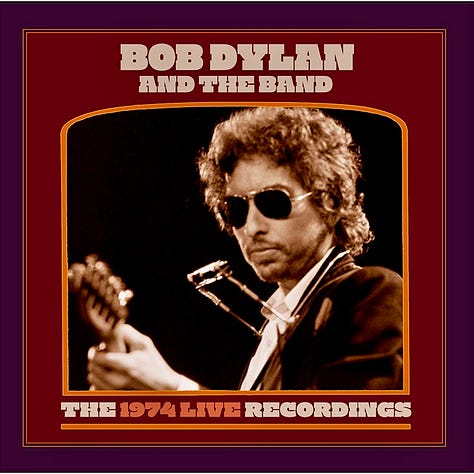
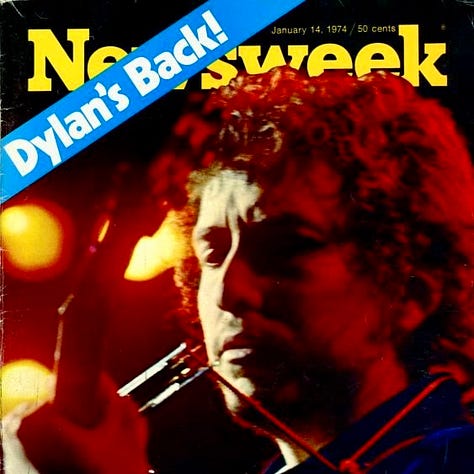
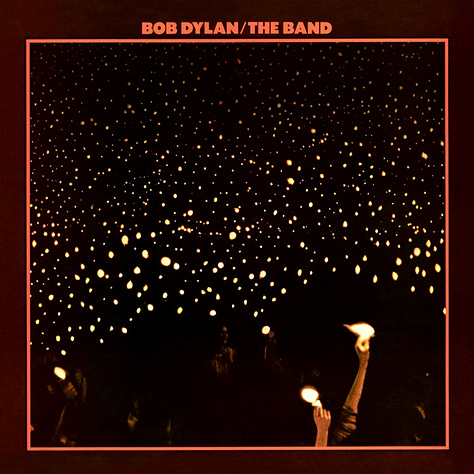
The 1974 Live Recordings, Bob Dylan and The Band
27 discs, Sony box set
People forget how worn down the youth movement felt in early January, 1974, when Bob Dylan launched his comeback tour with The Band at Chicago Stadium. The Watergate hearings of the summer before had exposed both hack skullduggery and its subsequent cover-up after President Nixon’s landslide win against his anti-war opponent, Senator George McGovern, in 1972. Spiro Agnew resigned under a cloud of extortion, bribery, and tax evasion charges, and Chief Justice Warren Burger swore in Gerald R. Ford as the new Vice-President in December, 1973. But even as his co-conspirators marched off to jail, Nixon remained in office.
Dylan plunged into a new sweep and drama that set off bombs inside these familiar songs, and they hit you everybody differently, not just because everybody had grown older, but because they still had more to say, more threats to deliver, and metaphors that had only curdled over time…
After nearly a decade of teach-ins, Be-Ins, marches, riots, assassinations, protests, Woodstock, and the Kent State murders, the Vietnam War ground on, impervious to protest. Rock fans speculated wildly about the Next Big Thing, and whether hitting 30 meant you couldn’t be trusted anymore. The rock press harassed each former member of the Beatles for reunion quotes, and the Rolling Stones released “Angie,” a desultory single that signaled a shift from cultural to careerist authority…
noises off
Foreboding political realities disrupt loyalties around the Black Keys (terrific album), that desperation crypto gig, and the new Securities and Exchange Commish
Next month: annual lists, lotsa new links, and waning ironic detachment
Frome the archives: Lebanese violinist Layala Chaker, the history of college radio, and the last solo Beatles roundup
riley rock index: obits, bylines, youtube finds, reference sites, pinterest, beacons.ai, random deep link


